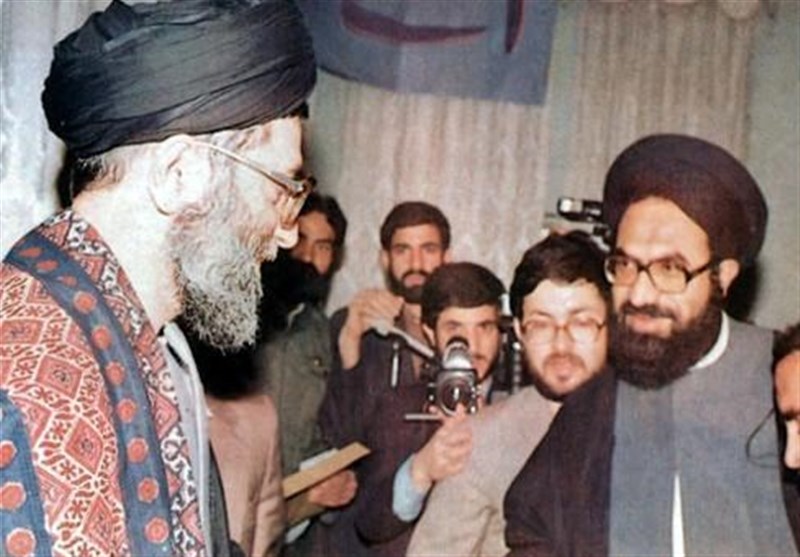
RNA – August 5th marks the anniversary of the martyrdom of the oppressed Pakistani Shi’ah leader, the student and son of Imam Khomeyni, Allamah Sayyed Arif Husayn al-Husayni, who was fascinated by the greatness of Imam Khomeyni’s mysticism and behaviour and in the heart of the victimized and oppressed society of Pakistan, he took the guiding torch in his hand.
Allamah Arif al-Husayni was born on November 25, 1946 in the northwestern Pakistani city of Parachinar and spent his life teaching and learning Islamic sciences and demonstrating himself as an unparalleled mujahid until at dawn on August 5, 1988 when he was 42 years old, members of the Sipah-e Sahabah Takfiri terrorist organization, who couldn’t tolerate his truthful statements, martyred them with a shotgun.
His father, Sayyed Fadhl Husayn, was one of the religious and religious elders of Parachinar and because of their noble descent from Imam Ali ibn al-Husayn, they were always respected by the people and for this reason they were known as al-Husayni. In the line of this great martyr, there have been many scholars and mujahids.
In his hometown, Allamah Arif al-Husayni learned the Holy Quran and began his introductory education and completed his high school education in Parachinar. In 1964, due to his love of learning Islamic studies, he entered the Islamic Seminary of Parachinar and after a short time of learning Arabic language, he became fluent in four languages – Urdu, Pashto, Persian and Arabic.
In 1967, His Eminence travelled to Najaf to continue his education and then traveled to Qom. He has been studying Islamic sciences in the presence of teachers such as Allamah Mohammad-Ali Modarres-Afghani.
While attending the classes of Grand Ayatollah Sayyed Yousef Madani-Tabrizi during his stay in Najaf, he became familiar with the thought of Imam Khomeyni. The revolutionary spirit of Imam Khomeyni was precisely what he was looking for and thus his activities took on the essence of anti-tyranny and anti-imperialism.
Following these actions by Allamah Arif al-Husayni, the Iraqi government arrested and detained him and expelled him from Iraq a while later.
When he returned to Pakistan, he spent ten months in Parachinar and married during this period.
In 1974, he sought to return to Najaf and complete his studies, but the Iraqi government did not give him a visa. As a result, he traveled to the holy city of Qom and benefited from the presence of teachers such as Martyr Mortaza Motahhari, Grand Ayatollah Naser Makarem-Shirazi, Ayatollah Hoseyn Vahid-Khorasani and others.
In the city of Qom, Allamah Arif al-Husayni didn’t forget his revolutionary activities to spread the beliefs of Imam Khomeyni and managed to engage in extensive activities against the Pahlavi regime.
The Shah’s secret police, domestic security and intelligence service, SAVAK, identified him and demanded that he promise to no longer attend protests and anti-imperialist meetings, but his spirit of opposition to oppression prevented him from accepting such a shameful undertaking.
This caused the Pahlavi regime not to be able to tolerate his presence and forced him to return to Pakistan.
From 1974 to 1979, he taught religious sciences at the Ja’fariyyah Seminary in Parachinar and at the same time he was responsible for the management of the seminary.
In those years, His Eminence was the representative of Imam Khomeyni in receiving religious funds in Pakistan and with words of his guidance he awakened the sleepy spirit of Pakistani Shi’ahs.
At dawn on August 5, 1988, he went to Dar al-Ma’rif Seminary in Parachinar after morning prayers and was attacked by terrorists from Sipah-e Sahabah and was martyred.
Following the martyrdom of the leader of Pakistani Shi’ahs, Imam Khomeyni said in an impressive tone, “I have lost my dear son.”
Funeral prayers for Allamah Arif al-Husayni were carried out by Ayatollah Ahmad Jannati who traveled to Pakistan along with a group representing the Islamic Republic of Iran.
The martyr’s body was buried and buried in his hometown of Parachinar.
The Pakistani people have a great love and interest in Allamah Arif al-Husayni and still remember him as their martyred leader.
112/930/671